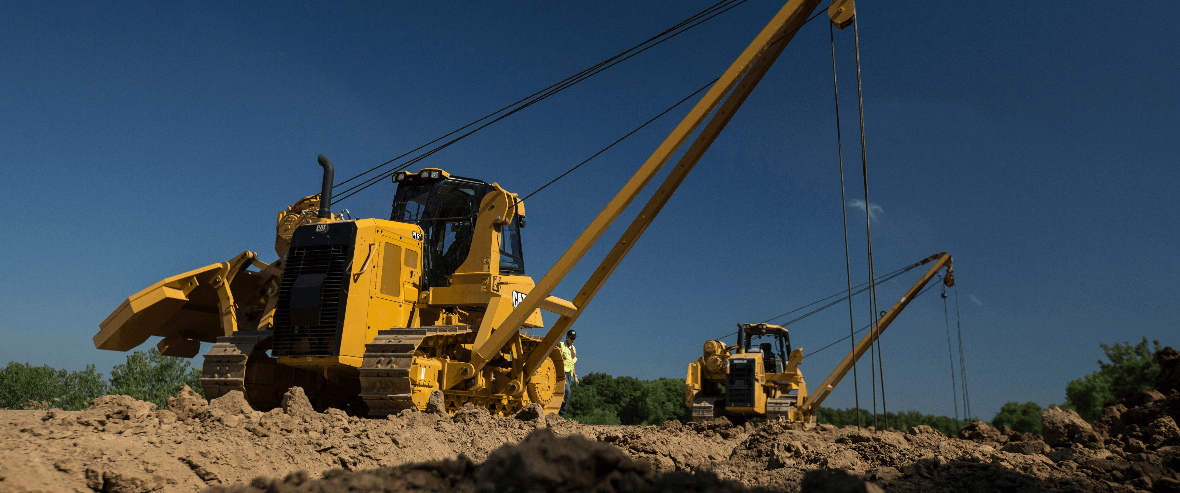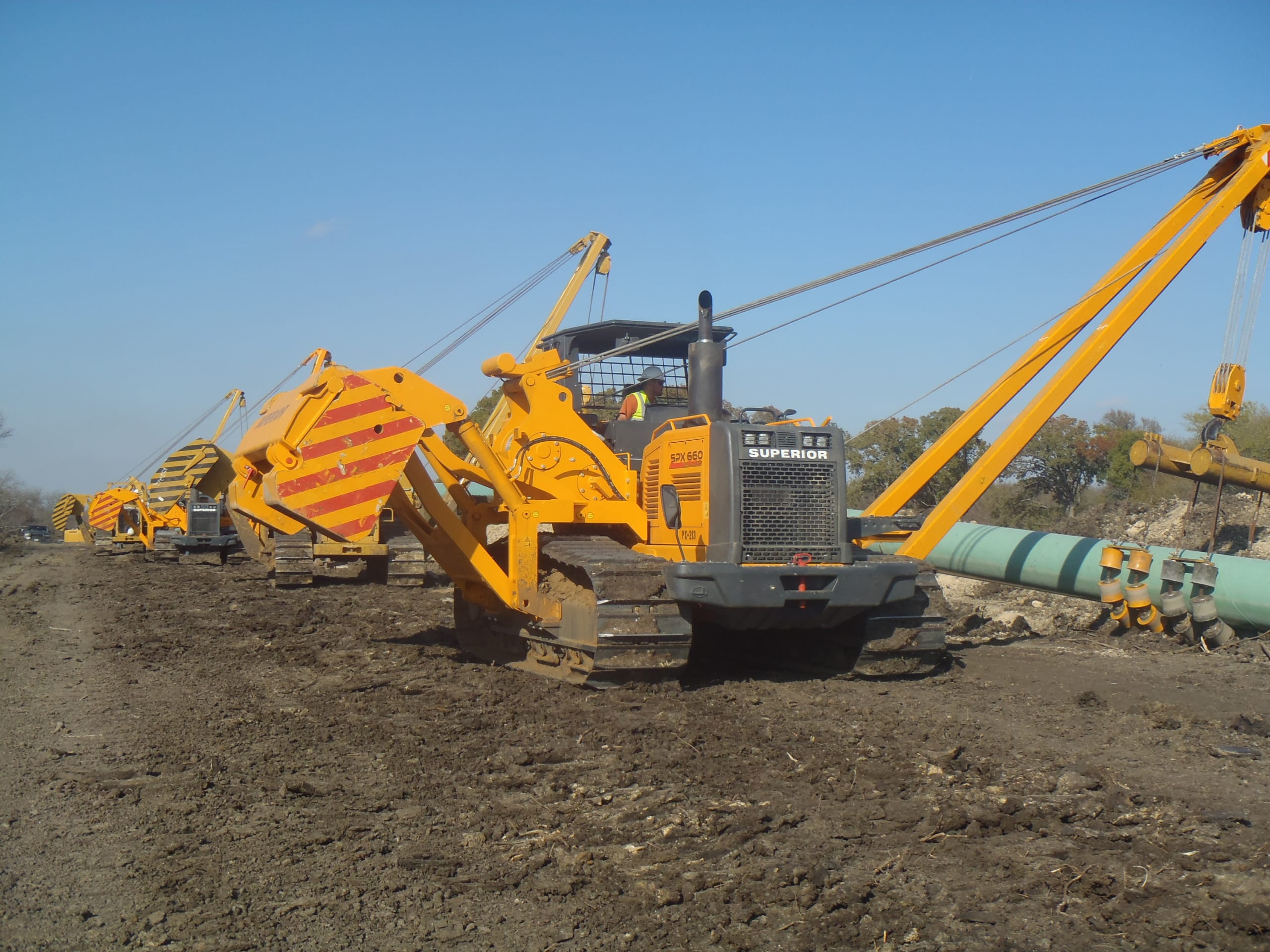Superior Rentals near me: proven strategies for choosing the right partner
Wiki Article
A Comprehensive Guide to the Numerous Kinds Of Oil Field Equipment and Pipeline Equipment Available
The oil and gas industry depends greatly on customized tools for efficient removal and transport. Numerous kinds of equipment, from drilling rigs to storage space containers, play essential functions in this complicated procedure. Each tool serves distinct functions that add to overall functional success. Recognizing these parts is necessary for any person entailed in the field. As the industry evolves, so also do the modern technologies that sustain it. What improvements are on the horizon?
Drilling Rigs: The Foundation of Oil Expedition
Drilling rigs act as the essential equipment in the domain of oil exploration, making it possible for companies to access hydrocarbon gets hidden deep under the Earth's surface area. These rigs are available in different types, including land rigs, offshore rigs, and mobile devices, each created to run in details atmospheres. Equipped with innovative technology, drilling rigs can permeate geological developments with precision, making certain effective source extraction. The structural integrity and functional abilities of these rigs are crucial, as they need to endure severe conditions and considerable stress. Additionally, the selection of an exploration rig influences the overall job cost and timeline, making it an important factor to consider for oil firms seeking to enhance their expedition initiatives and maximize productivity in their procedures.Pumps: Essential for Fluid Motion
In the oil extraction procedure, the duty of pumps is significant, helping with the activity of fluids throughout different phases of production. Pumps are crucial for transporting unrefined oil, water, and other fluids from below ground tanks to the surface area and after that via pipelines to refineries. They come in various types, including centrifugal, favorable displacement, and completely submersible pumps, each offering certain purposes based on the fluid features and functional needs. Centrifugal pumps are typically utilized for their effectiveness in high-flow applications, while favorable variation pumps master taking care of viscous liquids. The option of pump influences total performance, operational safety, and maintenance prices. Correct option and maintenance of pumps are crucial for enhancing manufacturing and reducing downtime in oil area procedures.Valves: Managing Flow and Pressure

Shutoffs play a crucial role in managing the circulation and stress of liquids within oil fields and pipes. Various sorts of shutoffs offer distinct applications, each developed to fulfill specific features basic for reliable operation - Superior Rentals fusion machines. Comprehending the characteristics and uses these valves is essential for enhancing system efficiency and safety
Types of Valves
Vital components in oil area procedures, valves play an essential duty in controlling the circulation and pressure of fluids within pipelines and tools. Various kinds of shutoffs are utilized to fulfill the diverse demands of oil and gas production. Common types consist of gate valves, which supply a straight-line flow and marginal stress decline; globe valves, known for their throttling capabilities; and sphere shutoffs, identified for their fast on/off control. Furthermore, check valves prevent heartburn, while butterfly valves supply a light-weight solution for managing flow. Each valve type is created with particular products and configurations to endure the harsh conditions frequently located in oil fields, making sure dependability and performance in operations. Recognizing these kinds is important for efficient system administration.Valve Applications and Features
While numerous sorts of valves offer distinct purposes, their main applications revolve around regulating circulation and pressure within oil and gas systems. Valves such as entrance, globe, and sphere valves regulate fluid movement, ensuring peak efficiency and safety. Gate shutoffs are typically used for on/off control, offering very little circulation resistance. World valves, on the various other hand, offer exact circulation guideline, making them appropriate for strangling applications. Sphere valves are favored for their quick procedure and limited securing abilities. On top of that, stress alleviation shutoffs are essential for preventing system overpressure, guarding devices stability. Overall, the proper selection and application of shutoffs enhance operational efficiency, ensuring the reputable transport of oil and gas through pipelines and handling centers.Compressors: Enhancing Gas Transport
Compressors play a vital function in the effective transportation of natural gas, making sure that it moves smoothly through pipelines over long ranges. These gadgets boost the stress of natural gas, enabling it to gas line leak get over friction and elevation changes within the pipeline system. In addition, compressors assist in the balancing of supply and demand, accommodating fluctuations in consumption and manufacturing prices. Various kinds of compressors are utilized in the industry, consisting of centrifugal, reciprocating, and rotating screw compressors, each offering distinctive benefits based upon the operational requirements. Routine upkeep of these compressors is necessary to make best use of performance and minimize downtime, ultimately contributing to a trusted gas transport network. Their essential feature emphasizes the relevance of compressors in the general oil and gas infrastructure.Storage Tanks: Safe and Effective Fluid Monitoring
Effective transportation of gas counts on different support group, among which is the correct monitoring of storage space containers. These storage tanks play a vital function in safely having fluids, ensuring that operational efficiency is maintained while minimizing environmental risks. Built from resilient materials, they are created to withstand high stress and corrosive components. Properly sized and strategically situated, storage space containers assist in the smooth circulation of all-natural gas and other fluids, avoiding bottlenecks in supply chains. Routine maintenance and monitoring are crucial to spot leakages or structural problems, advertising safety and security and compliance with governing criteria. Eventually, the effective administration of storage tanks is important for the total stability and reliability of the oil and gas industry's fluid handling systems.
Pipeline Systems: Framework for Transport
Pipeline systems serve as the backbone of the oil and gas industry, promoting the effective transport of hydrocarbons over large ranges. These systems include various elements, including pipelines, valves, pumps, and compressors, all diligently designed to assure seamless circulation. The products used in pipeline construction, typically steel or high-density polyethylene, are picked for durability and resistance to deterioration. Pipeline networks can span across land and water, attaching manufacturing sites to refineries and distribution. In addition, progressed technology enables real-time surveillance of flow rates and pressure levels, enhancing operational efficiency. The strategic positioning of these pipes minimizes ecological influence while making best use of resource ease of access, consequently playing a crucial duty in meeting power demands around the world.Security Equipment: Making Sure Employee and Environmental Defense
The procedure of pipeline systems, while crucial for power transportation, likewise provides significant security challenges for employees and the environment. Security equipment plays a considerable role this link in mitigating these threats. Personal safety devices (PPE) such as headgears, gloves, and non-slip footwear safeguards employees from physical risks. In addition, gas discovery systems keep track of for leaks, ensuring that unsafe compounds do not posture a risk to workers or the surrounding environment. Emergency closure systems are essential for swiftly halting procedures during a dilemma, stopping potential disasters. Spill containment materials, consisting of absorbents and obstacles, are basic for minimizing environmental impact. On the whole, spending in all-inclusive security equipment is crucial for preserving functional stability and safeguarding both employees and the environment in the oil and gas industry.
Regularly Asked Concerns
Just how Do I Pick the Right Oil Field Equipment for My Job?
Picking the ideal oil field equipment involves reviewing task specifications, budget plan constraints, and operational needs. Think about elements such as tools integrity, compatibility with existing systems, and the provider's credibility to ensure peak efficiency and safety.What Are the Maintenance Requirements for Oil Field Equipment?
Upkeep needs for oil field devices include regular assessments, lubrication, and try here prompt repairs. Operators should likewise comply with manufacturer guidelines, display performance metrics, and warranty compliance with security policies to improve durability and effectiveness.
How Can I Ensure Compliance With Environmental Rules?
To ensure compliance with environmental policies, firms should carry out routine audits, implement ideal practices, purchase training, keep proper documents, and remain upgraded on regulation (Superior Rentals reviews). Partnership with ecological companies can also improve adherence to policiesWhat Is the Typical Lifespan of Pipeline Equipment?
The ordinary life-span of pipeline tools commonly varies from 20 to 50 years, relying on elements such as material high quality, environmental problems, and maintenance methods. Routine assessments can considerably influence long life and functional performance.Just how Do I Safely Move Oil Field Equipment to Remote Locations?
Carrying oil field devices to remote areas calls for mindful preparation, including route analysis, protecting licenses, using ideal automobiles, and ensuring security protocols are adhered to. Correct training and interaction among staffs are crucial for effective transport.Report this wiki page